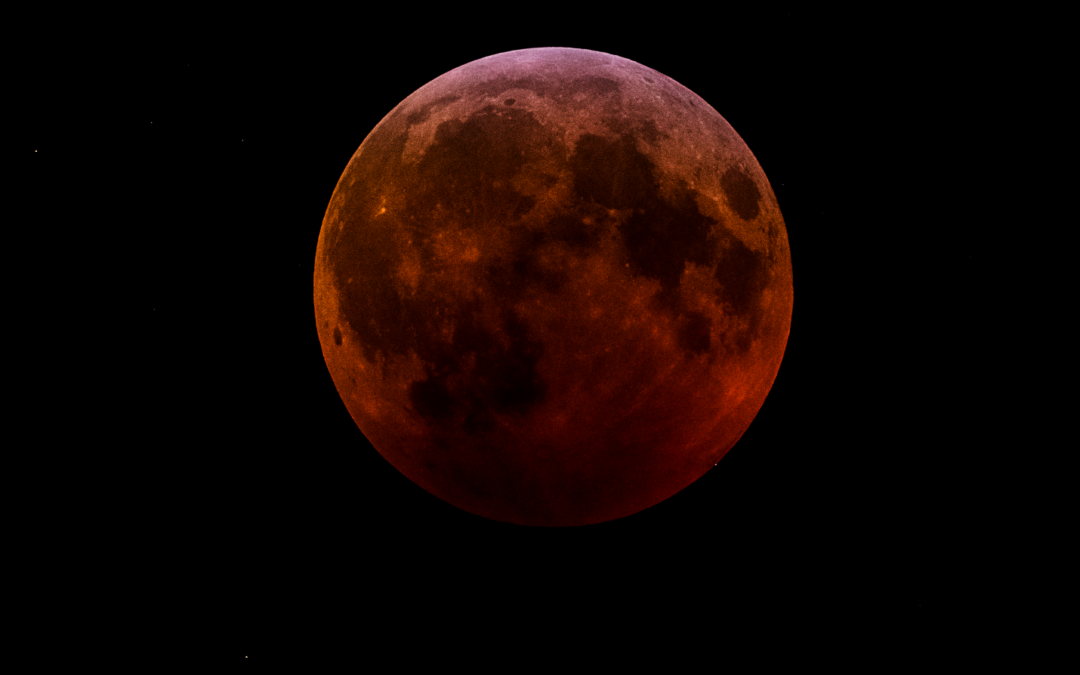Peter declares the skeptic’s assumption: “All things continue as they were from the beginning of creation.” We live persistently in the skeptic’s rationale—not the skepticism, mind you; just the rationale. For us, confidence in the present provides comfort: air remains breathable, water potable, ground walkable, life livable. The skeptic takes a step we don’t, or don’t express: his certainty in the present eclipses the possibility and purpose of a different future. Less absolutely, but still unfortunately, our confidence in the present makes a different future uninteresting, unimportant, or at worst, uninviting.
Long before his reference to the skeptic’s rationale, Peter undermines it at Pentecost. Quoting Joel: “And I will show wonders in the heavens above and signs on the earth below, …the sun shall be turned to darkness and the moon to blood, before the day of the Lord comes, the great and magnificent day.”
There are solar eclipses every few years, lunar every few months—the image with this text is one I took of a recent lunar eclipse at totality. Stars normally washed out by the two brightest lights are suddenly visible. These predictable albeit sporadically periodic events are not omens of the imminent, but of the inevitable. Under a black sun or red moon it is easier to realize that things will not always be the same.
An invisible virus has eclipsed the formerly “ineluctable” present. The shadow is momentary. We will go back to the works and days of hands just as the moon reverts to its paleness, the sun its gold. But it is momentous, too—a reminder that our hope for the next age should relax our grip on this one.
Our faith is not the substance of things had, but hoped for.
This week, may those who notice only their darkened sun find the stars of eternal heaven revealed in our faith.

